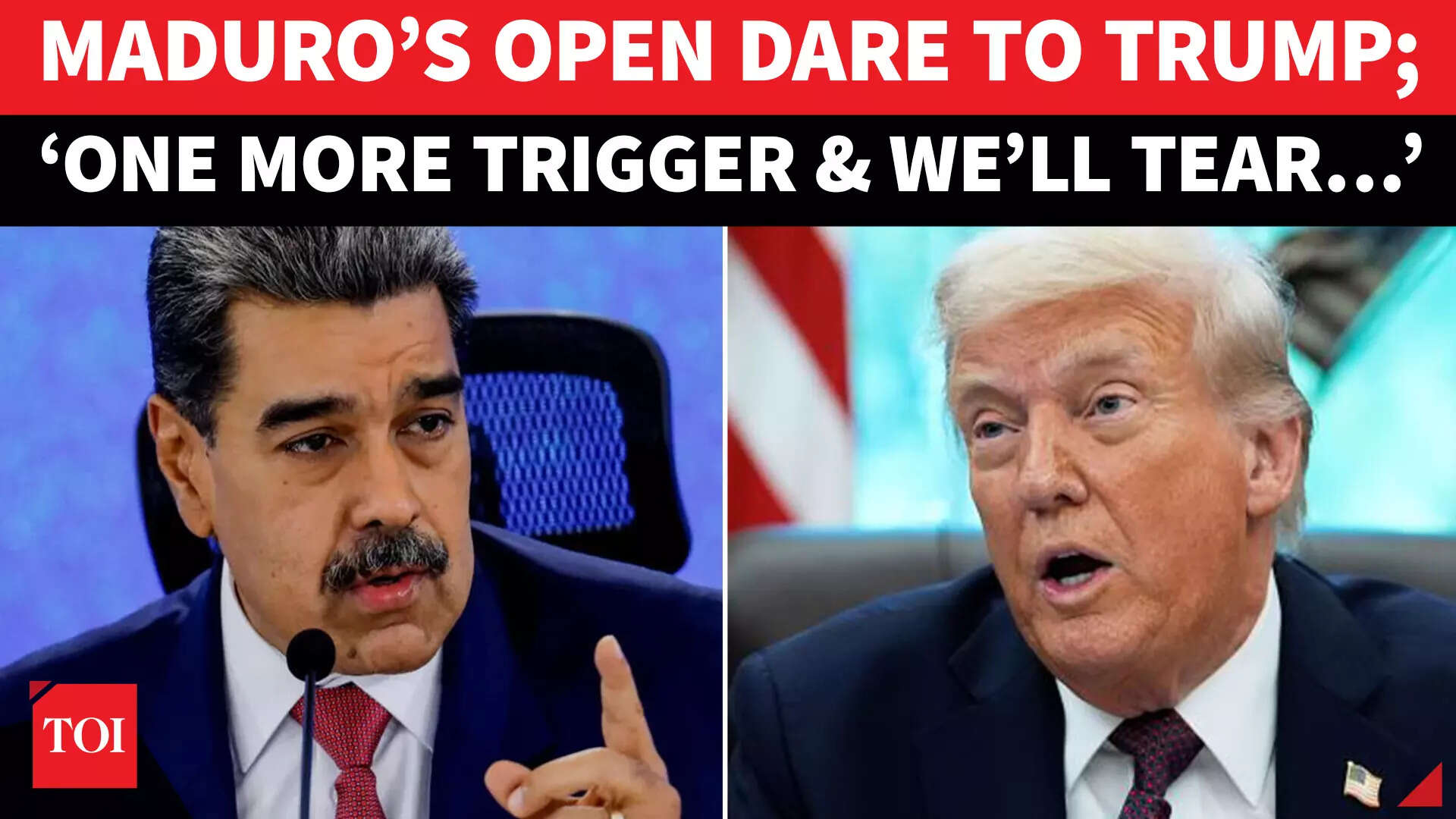Politics
Maduro Accuses U.S. of Aggression Amid Rising Tensions

Venezuelan President Nicolás Maduro has issued a stark warning to the United States, accusing it of using false pretexts to justify military aggression against Venezuela. During a press conference held on August 15, 2023, Maduro vehemently denied allegations connecting his government to drug trafficking and asserted that the U.S. aims to seize Venezuela’s natural resources, particularly gold, to orchestrate regime change.
At the heart of Maduro’s claims is the assertion that the U.S. has exaggerated Venezuela’s role in global drug trafficking. He labeled the accusations as fabrications intended to justify military posturing in the Caribbean. The president pointed to the presence of U.S. warships, missiles, and marines in the region as evidence of a growing threat. Maduro stated, “The drug war is a false pretext for intervention,” emphasizing that such military actions are rooted in economic interests rather than genuine concerns about drug trafficking.
Context of Rising Tensions
The relationship between Venezuela and the United States has been tense for years, marked by sanctions and accusations of human rights violations. The U.S. government has designated Maduro’s administration as a key player in the international drug trade, linking it to the so-called Cartel of the Suns, a term used to describe high-ranking military officials allegedly involved in drug trafficking. Maduro dismissed these claims as politically motivated, arguing they serve as a smokescreen for U.S. imperial ambitions in Latin America.
Maduro’s statements come at a time when relations between the two nations are particularly strained. The Venezuelan leader has criticized U.S. policies that he claims threaten the sovereignty of his country. He expressed concern over the potential for military action, stating that the U.S. is “looking for any excuse to invade” Venezuela. This rhetoric raises alarms about the possibility of escalating conflict in the region.
International Reactions and Implications
The international community has been closely monitoring the situation. Several nations have called for dialogue and a peaceful resolution to the tensions. Analysts suggest that continued hostilities could destabilize not only Venezuela but also neighboring countries in the Caribbean and Latin America. The situation remains fluid, with both sides displaying a readiness to respond to perceived threats.
As the U.S. maintains its military presence in the Caribbean, the implications of Maduro’s warnings extend beyond Venezuela. The potential for conflict could have significant ramifications for regional security and economic stability. Maduro’s accusations highlight the complex interplay of power, resource control, and geopolitical strategy that characterizes U.S.-Venezuela relations.
In summary, Nicolás Maduro has positioned himself firmly against what he describes as U.S. aggression, framing the country’s military activities as a direct threat to Venezuela’s sovereignty. His statements reflect a broader narrative of resistance against perceived external interference, which continues to shape the political landscape in Latin America. As the situation evolves, the world watches closely, weighing the risks of escalation against the need for diplomacy and dialogue.
-

 World2 months ago
World2 months agoSBI Announces QIP Floor Price at ₹811.05 Per Share
-

 Lifestyle2 months ago
Lifestyle2 months agoCept Unveils ₹3.1 Crore Urban Mobility Plan for Sustainable Growth
-

 Science2 months ago
Science2 months agoNew Blood Group Discovered in South Indian Woman at Rotary Centre
-

 Sports2 months ago
Sports2 months agoBroad Advocates for Bowling Change Ahead of Final Test Against India
-

 World2 months ago
World2 months agoTorrential Rains Cause Flash Flooding in New York and New Jersey
-

 Sports2 months ago
Sports2 months agoCristian Totti Retires at 19: Pressure of Fame Takes Toll
-

 Top Stories2 months ago
Top Stories2 months agoKonkani Cultural Organisation to Host Pearl Jubilee in Abu Dhabi
-

 Science2 months ago
Science2 months agoNothing Headphone 1 Review: A Bold Contender in Audio Design
-

 Top Stories2 months ago
Top Stories2 months agoAir India Crash Investigation Highlights Boeing Fuel Switch Concerns
-

 Business2 months ago
Business2 months agoIndian Stock Market Rebounds: Sensex and Nifty Rise After Four-Day Decline
-

 Politics2 months ago
Politics2 months agoAbandoned Doberman Finds New Home After Journey to Prague
-

 Top Stories2 months ago
Top Stories2 months agoPatna Bank Manager Abhishek Varun Found Dead in Well









